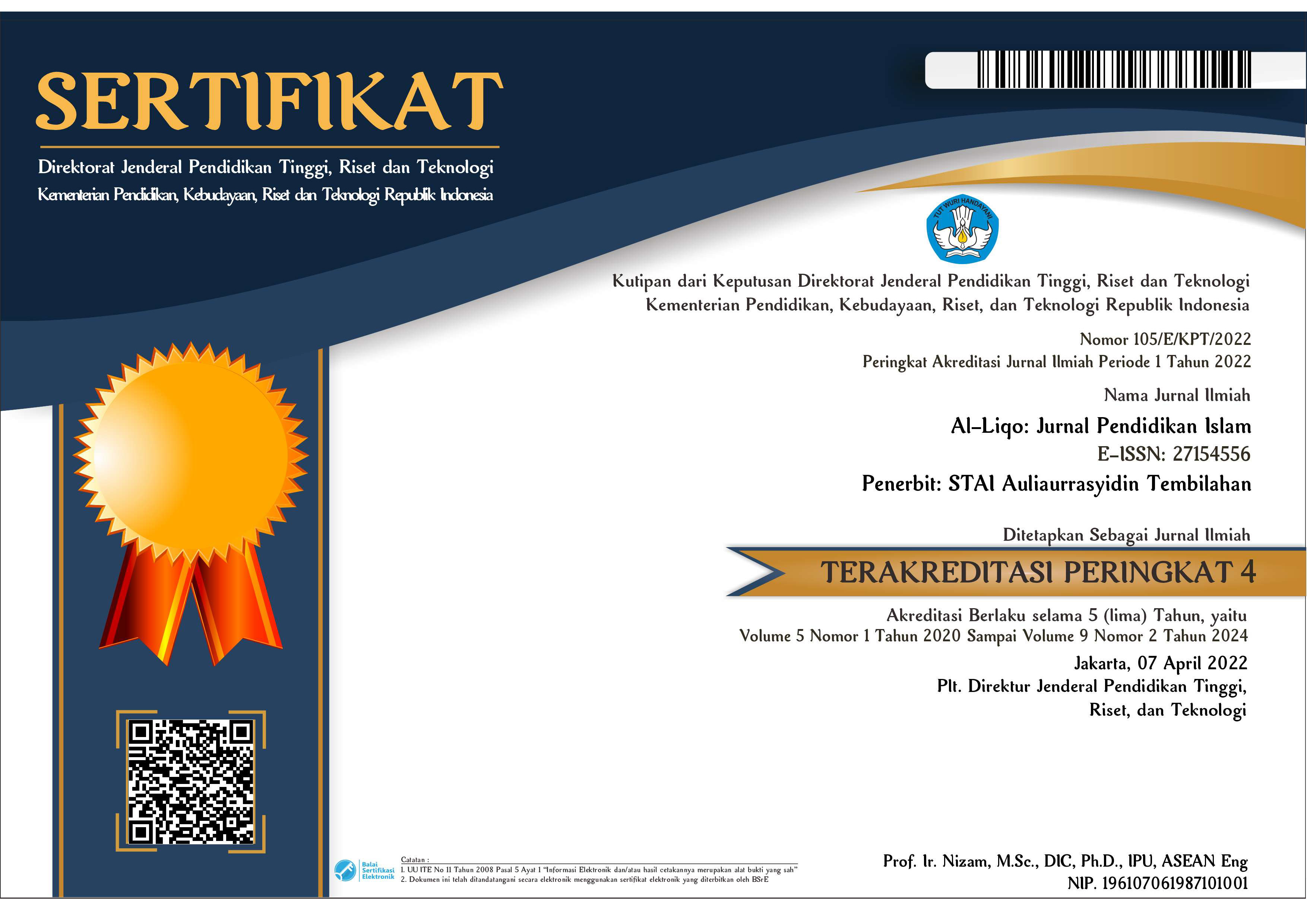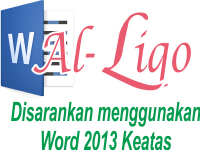Penerapan Pendidikan Multikultural pada Sekolah Dasar
DOI:
https://doi.org/10.46963/alliqo.v8i1.705Keywords:
Multicultural Education, Elementary SchoolAbstract
In the midst of the very rapid development of information technology, Indonesia is experiencing a multidimensional crisis including a crisis of morality, ethics and tolerance. We find many cases that occur today such as juvenile delinquency, brawls, bullying etc. One reason is the lack of understanding of the cultural diversity that exists in Indonesia. Cultural diversity should be seen as a gift given by God Almighty as a manifestation of the Sunnatullah which is a force to support each other and build unity, not as an excuse for committing acts of discrimination, suspicion, injustice and human rights violations. Educational institutions have an important role in creating a generation that understands the concept of multiculturalism, where students can be given an understanding and accustomed to thinking and acting in accordance with the concept of multiculturalism. The formulation of the problem in this study is how is the implementation of multicultural education in elementary schools presented in the supporting and inhibiting factors for the implementation of multicultural education and an analysis of the literature on the implementation of multicultural education in elementary schools.
Downloads
References
Ahmad, R., Ansori, M., Ibnu, S., & Malang, S. (2016). Strategi Penanaman Nilai-Nilai Pendidikan Islam Pada Peserta Didik.
Albi Anggito, & Johan setiawan. (2018). Metodologi Penelitian Kualitatif (Ella Deffi Lestari, Ed.; 1 ed., Vol. 1). CV Jejak.
Daniel Dike, (2017). Pendidikan Multikultural Sekolah Dasar Di Wilayah 3T. Jurnal Pendidikan Dasar PerKhasa, Volume 3 Nomor 1.
E Mulyasa. (2007). Menjadi Guru Profesiona l(Mukhlis, Ed.; 6 ed.). PT. Remaja Rosdakarya.
Hidayati Azkiya, M. Tamrin, Arlina Yuza, Ade Sri Madona, (2022). Pengembangan E-Modul Berbasis Nilai-Nilai Pendidikan Multikultural Di Sekolah Dasar Islam. Jurnal al-Thariqah, Vol.7 No.2.
Huda, M. (t.t.). Peran Guru Pendidikan Agama Islam Dalam Mengembangkan Pendidikan Multikultural.
Muhtadi, A. (t.t.). Penanaman Nilai-Nilai Agama Islam Dalam Pembentukan Sikap Dan Perilaku Siswa Sekolah Dasar Islam Terpadu Luqman Al-Hakim Yogyakarta.
Natari, R., & Suryana, D. (2022). Penerapan Nilai-Nilai Agama dan Moral AUD Selama Masa Pandemic Covid-19. JurnalObsesi :Jurnal Pendidikan Anak Usia Dini, 6(4)
Nur Latifah, Arita Marini, Arifin Maksum. (2021), Pendidikan Multikultural Di Sekolah Dasar (Sebuah Studi Pustaka). JPDN (Jurnal Pendidikan Dasar Nusantara), Volume 2 Nomor 2.
I., & Hardiansyah, F. (t.t.). Nilai Religius Melalui Budaya Sekolah; Implementasi Nilai Religius Melalui Budaya Sekolah: Studi Fenomenologi.
Sipuan, S., Warsah, I., Amin, A., &Adisel, A. (2022). Pendekatan Pendidikan Multikultural. Aksara: JurnalIlmu Pendidikan Nonformal, 8(2), 815.
Sita Acetylena. (2018). Pendidikan Karakter Ki Hajar Dewantara (1 ed.). Madani Kelompok Intrans Publishing.
Syahrial, S., Kurniawan, A. R., Alirmansyah, A., &Alazi, A. (2019). Strategi Guru dalam Menumbuhkan Nilai Kebersamaan pada Pendidikan Multikultural di Sekolah Dasar. Jurnal Gentala Pendidikan Dasar, 4(2), 232–244.
Downloads
Published
Issue
Section
License
Copyright (c) 2023 Uun Khaerunnisa, Astuti Darmiyanti, Ferianto Ferianto

This work is licensed under a Creative Commons Attribution-ShareAlike 4.0 International License.
Authors who publish with this journal agree to the following terms:
1. Copyright on any article is retained by the author(s).
2. The author grants the journal, right of first publication with the work simultaneously licensed under a Creative Commons Attribution shareAlike 4.0 International License that allows others to share the work with an acknowledgment of the work’s authorship and initial publication in this journal.
3. Authors are able to enter into separate, additional contractual arrangements for the non-exclusive distribution of the journal’s published version of the work (e.g., post it to an institutional repository or publish it in a book), with an acknowledgment of its initial publication in this journal.
4. Authors are permitted and encouraged to post their work online (e.g., in institutional repositories or on their website) prior to and during the submission process, as it can lead to productive exchanges, as well as earlier and greater citation of published work.
5. The article and any associated published material is distributed under the Creative Commons Attribution-ShareAlike 4.0 International License







2.png)



